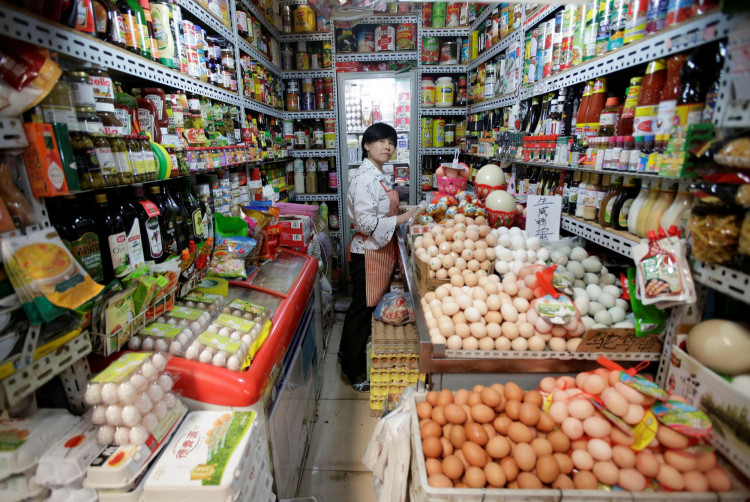China's ruling Communist Party unveiled an expansive "Special Action Plan to Boost Consumption" on Sunday, pledging to raise incomes, stabilize financial markets, and stimulate domestic demand as the world's second-largest economy grapples with weak consumer confidence and persistent deflationary pressures.
The plan, issued by the General Office of the Central Committee, outlines measures to "enhance consumption capacity by increasing income and reducing burdens," according to a translated version of the release. Among the key initiatives are efforts to promote reasonable wage growth, ease childcare and housing costs, and support new consumer sectors such as AI-driven products and winter tourism.
China's CSI 300 index and Hong Kong's Hang Seng index reacted mildly on Monday, with both benchmarks inching up about 0.1%, reflecting cautious optimism among investors.
The announcement follows Premier Li Qiang's recent government work report, which prioritized boosting consumption as China's top economic task for the year. Policymakers have increasingly acknowledged the urgent need to counter domestic deflation, evidenced by February's consumer price index (CPI) marking its sharpest decline in over a year and the producer price index (PPI) remaining in negative territory since late 2022.
To address these concerns, the action plan proposes:
- Promoting wage growth through improved minimum wage mechanisms.
- Reducing financial burdens by providing subsidies for childcare and encouraging policies to unlock earnings potential for homeowners.
- Developing consumer markets, including AI technologies, inbound tourism, and snow-and-ice tourism destinations.
- Stabilizing financial markets by implementing "multiple measures" to support the stock market and creating more bond products tailored to individual investors.
Fu Linghui, spokesperson for the National Bureau of Statistics, acknowledged the economic challenges during a press briefing on Monday. "The external environment has become more complex and grim, domestic effective demand is insufficient, some companies are facing difficulties in production and operation, and the foundation for the continuous recovery of the economy is still unstable," Fu said.
Despite retail spending showing year-over-year growth, data revealed that unemployment reached a two-year high while housing prices continued to fall in most large and medium-sized cities. "The foundation for sustained economic recovery and growth is not strong enough," the National Bureau of Statistics stated.
Lynn Song, ING's chief economist for Greater China, told CNBC, "While the plan does not seem to contain 'anything too new,' setting this out as an action plan signals that concrete steps at local levels will follow."
Song added, "As they say, Rome wasn't built in a day - neither was BYD and China's EV dominance - many of China's major policy directives take time to bear fruit, and this document plants the seeds for the long-term development of the consumer industry."
The action plan also comes against the backdrop of mounting global economic headwinds. Trade tensions between China and the U.S. continue to loom large, with former President Donald Trump signaling intentions to expand tariffs on Chinese exports, potentially prompting other nations to follow suit. Zhiwei Zhang, president and chief economist at Pinpoint Asset Management, warned that "the risk to the economy is the damage from higher U.S. tariffs on China's exports which will likely show up in the trade data over the next few months."
In January, Chinese leaders pledged 300 billion yuan ($41.45 billion) in ultra-long special treasury bonds to subsidize consumer spending. However, Beijing has largely refrained from launching sweeping stimulus packages, instead focusing on targeted measures such as local government debt support and bond issuance.
Richard Harris, CEO of Port Shelter Investment Management, emphasized the importance of China's domestic strategy in an interview with CNBC. "The authorities are determined to stimulate the economy, determined to keep it going, and even if we see some issues with the export side of the economy, they are determined to get the domestic economy going. Because they have to," Harris said.






